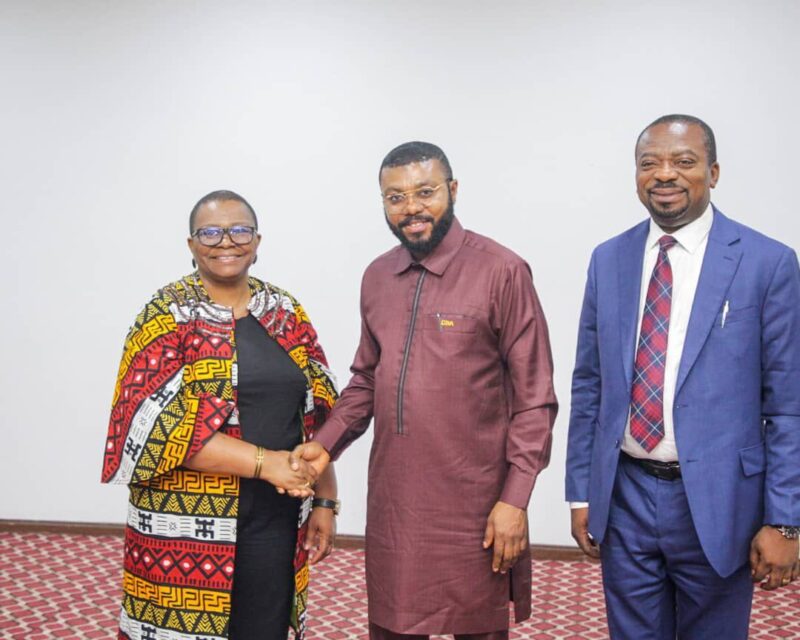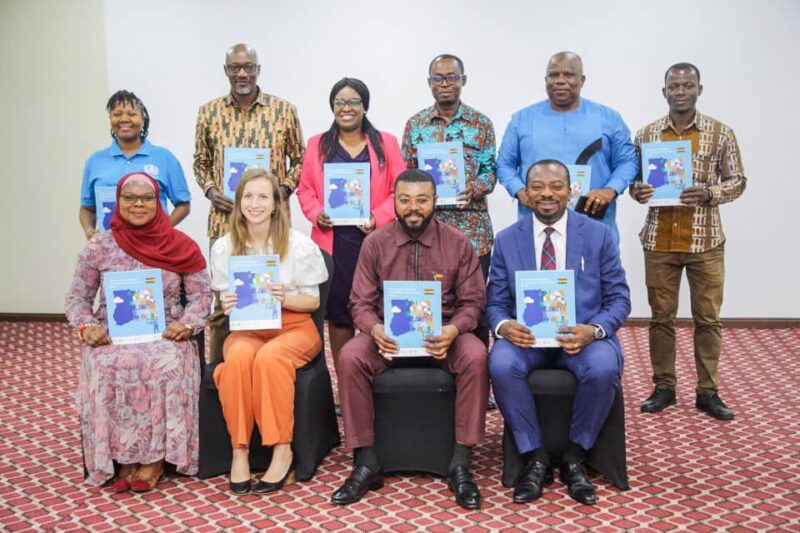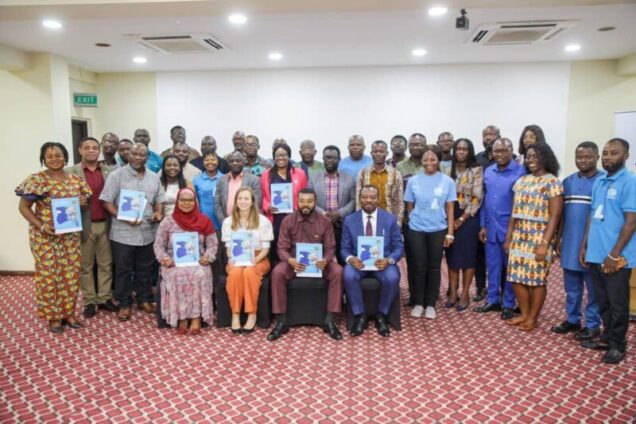Ghana has taken a monumental step towards building a more sustainable future by unveiling a comprehensive roadmap to decarbonise the building and construction sector.
The roadmap, launched on October 24 at the AH Hotel in Accra, aims to significantly reduce carbon emissions across the entire construction value chain.

Speaking at the launch, the Deputy Minister of Housing, Dr. Prince Hamid Armah, emphasized the importance of this initiative, describing it as a “transformative” and “pivotal step” in the nation’s journey toward environmental sustainability.
“This moment marks a pivotal step in our collective effort to create a more sustainable, resilient, and environmentally responsible built environment in Ghana,” Dr. Armah declared.
In collaboration with UN-Habitat and UNOPs, the Government of Ghana has crafted this roadmap as part of broader efforts initiated in November 2023 under the “Transforming the Built Environment through Sustainable Materials” program.
The roadmap seeks to address the construction sector’s significant contribution to global climate change.

“The building sector is a major contributor to climate change. According to the United Nations Environment Programme, this sector accounts for over 37% of global energy-related carbon emissions,” Dr Armah highlighted, emphasising the urgent need for action.
He further pointed out the staggering statistics linked to the industry’s environmental impact, including its consumption of 40% of global energy and 30% of raw material extraction.
Key strategies outlined in the roadmap include the promotion of energy-efficient systems, green building materials, water conservation, and the adoption of innovative technologies.
“This roadmap is not just a document; it is a blueprint for meaningful change,” Dr. Armah stated.

He also stressed that collaboration from all stakeholders is crucial to the success of the roadmap.
As Ghana continues to experience rapid urbanisation, with an urban population of 58%, the demand for sustainable construction practices has become more urgent.
Dr. Armah urged stakeholders—government entities, the private sector, financial institutions, and civil society—to work together to ensure that Ghana’s built environment reflects its values, culture, and commitment to sustainability.
In conclusion, the Deputy Minister launched the roadmap with a hopeful message: “Let it inspire action, encourage partnerships, and drive the innovation needed to build a future we can all be proud of.”
Latest Stories
-
Bar Association should encourage every lawyer to take on some pro bono work – Justice Amaleboba
4 minutes -
Trailer for Ghana’s first kids podcast ‘Best Girlfriends’ premiered
9 minutes -
Ghana to host rescheduled WAFU B U20 Boys Cup in July 2025
35 minutes -
One thousand young professionals to get mentoring from FMCG Incubation Programme
39 minutes -
Producer Price Inflation falls sharply to 10.25% in May 2025, lowest since November 2023
56 minutes -
Choosing the right IT management partner and maximising the relationship (Part 2)
1 hour -
MP’s role is about representation, not educational qualifications – Justice Amaleboba
1 hour -
Analysis: Fitch upgrade signals turning point for Ghana’s economy, but risks persist
1 hour -
AbibiNsoma Foundation and FIDEP Foundation call for democratic oversight of emerging climate technologies, supports global non-use agreement on Solar Geoengineering
1 hour -
Costly rollover contracts to sink Ghana’s troubled cocoa sector even deeper
2 hours -
The NSS Scandal: Here’s why the new DG’s defence of ghost names digital platform/metric app is shocking
2 hours -
Standard Chartered empowers next generation of girls to embrace their periods proudly
2 hours -
‘You can’t intimidate me!’ – Ahiafor clashes with Afenyo-Markin
2 hours -
Review Supreme Court’s jurisdiction before capping judge appointments – Justice Amaleboba
2 hours -
Kumasi to undergo major clean-up ahead of Eswatini King’s royal visit
2 hours

